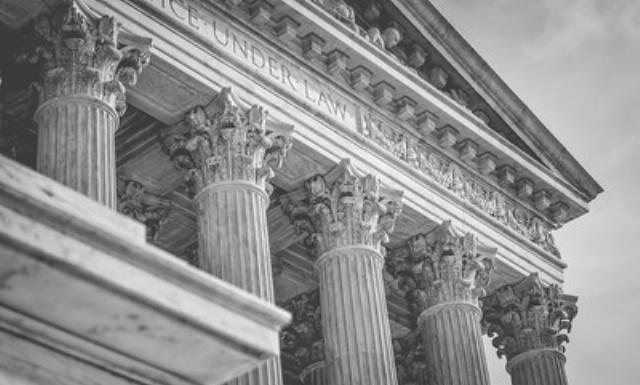Chevron is a big, big deal
If you believe in limited government, or fear that government bureaucrats rule every decision, then you’re going to love the ramifications of the Supreme Court’s recent overturning of Chevron v. National Resources Defense Council.
Conversely, some prefer not making decisions, or thinks a government employee is somehow better, smarter, less greedy. Those people will hate this decision.
Regardless, elimination of the Chevron doctrine is momentous.
A bit of historical background shines light on this watershed occasion. When our nation was founded, its leaders and citizens had just rebelled against the most powerful and tyrannical government at that time: the British monarchy, the king.
The founders were well versed in the Old and New Testaments, various religious and philosophical sects, and ancient Greek philosophy. Their desire was to create a law of the land that limited the inevitable growth and power of any government entity and thereby prevent another dictatorship. They formed a constitutional republic, not a democracy.
The difference is compelling: a republic is rule by the people, guided by the Rule of Law, the Constitution. And the Constitution’s sole aim is to limit the power of our government, including the majority. That infers, and precludes, the rule of a majority over a minority (democracy). Shocking? What do we get when two wolves and a sheep decide what’s for dinner? A democracy. For an example of the dominance of the majority over the minority, just look at the tax code: the top 1% of wage earners pay 45% of all taxes.
In 1984, the Chevron doctrine (deferral) gave powers, that were supposed to reside with Judiciary and the Legislative Branch, to mere government bureaucrats and regulators across all administrative functions. Chevron was the culmination of a century-long effort to increase the power of one person, the president, through bureaucratic (administrative) control.
In 2024, we see that dictatorship ending. Thanks to SCOTUS, particularly Justice Gorsuch. And, giving him his due, thanks to President Trump for nominating his three justices.
Removal of the Chevron doctrine is just the opening salvo of a difficult process that must be undertaken by the next president and Congress. It means several things. First, politicians cannot be elected on the promise of finding a government-based solution to every problem. Politicians in the future must be elected on the promise to reduce rules, regulations, and excess laws on the books. This is representative government.
Second, many bureaucrats must be reassigned to private employment or not be replaced — reduction through attrition. We don’t need the vast network of bureaucrat-employees who are paid from our private-sector taxes, and whose natural tendency is to exert control over our individual lives.
Third, federal spending must be curtailed, drastically. The government doesn’t make money; it takes from citizens in the form of taxation and debt. Further, the projects on which our government employees decide to spend are suspect. Each should be scrutinized for its end result and its adherence to the spirit of the law.
We must make the difficult decisions with full knowledge of cause and effect: what government has, it takes. Next, the private sector is the only economic class that generates profits and retains capital. Most importantly, those profits and that capital are much better off, are more effective and produce more jobs for more citizens, when they remain in the hands of the individual in the private economy.
Finally, the capacity of the private-sector economy and the individual is limited. At a certain point, the government can easily overpower and destroy the private sector, including individual freedom.
Removal of Chevron is the first, gigantic, step in righting the wrongs of excessive government. This is the turning point in a long war. I am thankful that we have the chance to put government power back in its place.
Jay Davidson is founder and CEO of a commercial bank. He is a student of the Austrian School of Economics and a dedicated capitalist. He believes that there is a direct connection joining individual right and responsibility, our Constitution, capitalism, and the intent of our Creator.

FOLLOW US ON
Recent Articles
- Katy Perry, Astronautesse and Unifying Force
- Small Business and Cybersecurity
- No One Is Above the Law—Including Letitia James
- Ready for Your Home to Become a Government School?
- Iran and the Failure of Collective Security
- Pam Bondi and the Genesis of Black Lives Matter
- Bill Maher Dines with Trump
- A ‘Hands Off’ Revealed Lots Of Anger But Not Much Coherent Thought
- Trump’s National Security Emergency Investigation Into Election Fraud Is Ongoing
- The Left’s Class Action Coup Against Immigration Law
Blog Posts
- Harvard tells Trump to give it money or it’ll shoot the monkey
- Democrats infatuated with criminals and gang members — American citizens? Not so much
- Media scream: ‘Trump is coming for your coffee!’
- Exactly how hard do we want our legislatures to work?
- Rubio brings free speech back to foreign (and domestic) policy
- The erasure of Easter
- Red states rising
- Senator Van Hollen should get some tips from Bukele about keeping Baltimore safe
- Troll: Trump releases docs on foreign gang member a primping senator is trying to bring back from foreign prison
- Not on my bingo card: Conservatives, or at least non-leftists, are coming close to winning elections in California
- Europe, Canada crossing a communist Rubicon from which they cannot return?
- What the Democrat party’s heroes say about them
- Editor for The Guardian whines about Muslim convicts facing ‘disproportionate’ force while incarcerated in English prisons
- Did Letitia James commit mortgage fraud?
- JD Vance says what needs to be said about illegal aliens and due process






